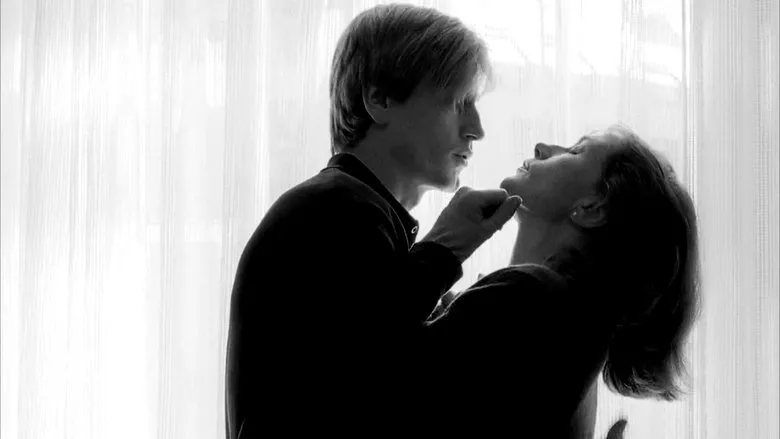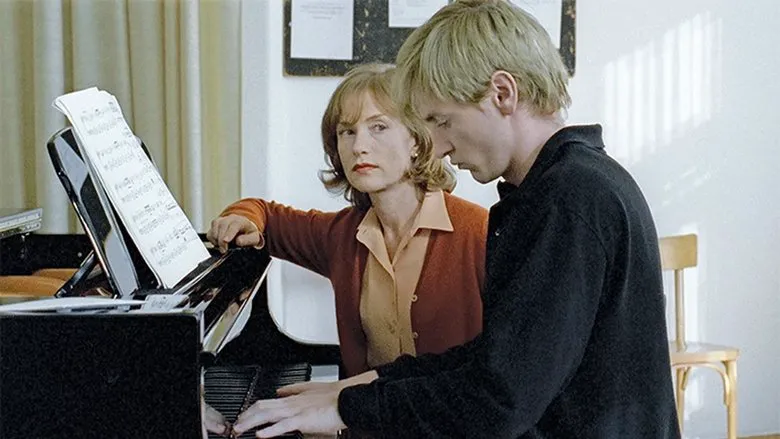Elfriede Jelinek: The “Notorious” Literary Prize Magnet
Elfriede Jelinek, an Austrian writer who garnered both acclaim and controversy, is the 2004 Nobel Prize laureate in Literature. But beyond the awards, Jelinek’s work has sparked significant debate, earning her the label of “notorious.”
Why “Notorious”?
Jelinek defies easy categorization. Her work is often challenging, confrontational, and unflinching in its examination of uncomfortable truths. Examining some takes from the German literary world reveals the controversy:
“Jelinek’s novels have too many descriptions of sex and evil, but no love, no beauty, and no light of humanity!” “There is only one thing in Jelinek’s novels: a constant stream of garbage!” “Jelinek’s novels create a cruel and ruthless world!” “Jelinek is the most ruthless, merciless, and rebellious moralist against her own country in Austrian history!”
These criticisms did not hinder her success. Prior to winning the Nobel Prize, she had already accumulated a plethora of literary distinctions. With accolades spanning the Heinrich Böll Prize to the Franz Kafka Prize. It is safe to say she is recongized as one of the best contemporary German female writers
The Nobel Prize committee, in its citation, offered a more nuanced perspective: “Her works may indeed bring us a dark picture of life, but Jelinek is not a thorough pessimist, because in her pessimism, there is an atmosphere of self-pity and silent prayer. What is revealed from her curse is a lively character who slanders because of the loss of hope, a light from the black sun.” This quote emphasizes the underlying humanity and hope, paradoxically present within her often bleak narratives.
The Piano Teacher: A Deep Dive
One of Jelinek’s most well-known and controversial works is “The Piano Teacher”(Die Klavierspielerin).
The novel delves into the life of Erika Kohut, a piano teacher trapped in a suffocating relationship with her overbearing mother, and her destructive pursuit of a student named Kremer. Upon the novel’s debut, its unsettling content and unwavering commitment to portraying the extremes of human behaviour ignited debate among critics. Erika’s experiences serve as a microcosm of a broader societal critique, dissecting themes of repression, control, and the search for individual agency within rigid societal structures.
Notably, the novel was adapted into a film starring Isabelle Huppert, who won Best Actress at the 2001 Cannes Film Festival.

Life Under Absolute Surveillance
Erika, pushing forty, lives under her mother’s tyrannical reign. Her father’s absence has further intensified this dynamic.
Erika’s mother exemplifies a deeply neurotic control freak. The extent to which she enforces such control defines their relationship. The details of Erika’s day become the relentless focus of her mother’s vigilance, turning daily life into an inescapable cycle. Furthermore, the mother assumes total command over Erika’s resources, blocking her opportunities to create relationships; preventing her from acquiring elegant clothing, and requiring them to share the same sleeping area.
Erika’s existence happens while walking a minefield. Despite being almost forty, her mother casts her as a perpetual child, removing any hope of privacy. The mother isolates Erika, stifling healthy social ties.
This overbearing control shapes Erika’s distorted personality, turning her into a person of deep conflict and hidden desires.
Suppressed Desires
Erika has a twisted love-hate relationship with her mother’s rule, as she is both affraid and used to it. Inside burns an almost perverted desire for liberation. Erika retreats to the outskirts when her mother’s protective gaze weakens. There, in hidden theaters she turns to the unadulterated performance of pornography.
There she numbs her need for emotion and acts only as an indifferent observer. she inflicts minor injuries in the bathroom as a way of releasing restrained desires. The scene’s graphic descriptions reveal the dark intensity of her inner pain. Through continuous bloodshed she relieves her inner pain, “Blood drips down, gradually turning into a continuous trickle, and later, this trickle begins to converge into an evenly flowing red stream.”
Erika’s constant struggle between self-control and raw desire shows the damage that can occur from suppressed want. Despite knowing it would bring only pain, Erika keeps experimenting with limits – her own emotional and physical boundaries. Desire is a forbidden fruit, fueling a secret universe of imagined experiences.

A Teacher-Student Relationship: A Hunter Game
Erika’s relationship with Kremer, is a convoluted power play.
Kremer’s feelings could be described as desire blended with the challenge to dominate. Erika is aware of Kramer’s attentions and uses this for her own gains. However, she is calculated in ignoring him. She denies him satisfaction and delights in the power to refuse. Standing on a brink where everything can tumble down is when Erika feels at her finest.
In reality, Erika tries to turn the dynamic to her favor – the manipulator instead of manipulated. By acting superior, she torments Kremer until, sure of the role she has constructed, she breaks down and lays bare all her deepest depravities in a message delivered by hand. However, the letter does more than what it says. Showing vulnerability has given Kramer an opportunity to overthrow the roles.
Kremer is torn between alarm and anger. Suddenly she seems ugly; He felt nothing desirable about her shape, her face was unattractive.
However, it slowly dawned on him that this was his opportunity. He takes the chance to hit back! By playing hard to get, he punishes her with the same strategy that she used to torment him. Rejection is returned as she is mocked with his indifference. The relationship has changed drastically, and he abuses the affection that she craver’s for. Kremer unleashes hell that night barging in whilst Erika tries to defend against Kremer who brutally beats and rapes her.
The damage is done, and she must spend the night in her own sorrow. He is victorious and believes to have restored a sense of ego.
Sadomasochism: The Pursuit of Power
Both characters are interested in obtaining greater control over gender-based relationships. A pursuit for control – whoever is at the top.
That is why in this relationship, neither of them shows pure affection – an absence of compassion and regard. This twisted dynamic reaches all the way to her connection with her mother. Where she imprisons Erika’s world by controlling every aspect of her life, stopping any hope of growth and keeping her trapped forever.
On infrequent occasions she rebels. However, she has grown so used to each command as it is comforting, like going home with her tail between her legs and going to the sadomasochistic embrace of her mother. At this moment of desperation, it does not mean that there is complete darkness. Although she is codependant, each needs the other to subsist.
Moreover: “The emotional storm that Erika swept towards her made her feel very satisfied. She felt as if she had been chased. The reason why a person is valuable is because she is needed by others. This is probably also the premise of love.”. In summary, their relationship thrives by mistreating one another.
Notably Jelinek is fearless, and many scenes are truly surprising. The story explores how society warps people, how victims have no power to resist destiny, and twisted desires consume them. The world is callous.